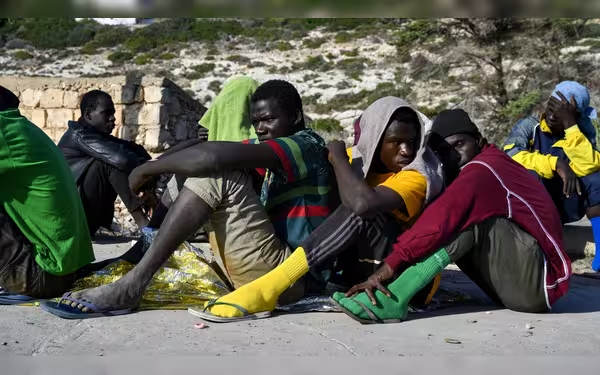Thursday, July 4, 2024 06:01 PM
EU urged to halt surge of migrants from Russia
- Finland seeks EU assistance to address migrant influx from Russia
- Concerns raised over security implications of migrants used as leverage
- EU Commission working with migrants' countries of origin for balanced approach
 Image Credits: Euronews.com
Image Credits: Euronews.comFinland's Prime Minister calls for EU support to tackle migrant surge from Russia, highlighting security concerns and the need for a balanced approach.
Finland's Prime Minister Petteri Orpo has urged the European Union to assist in halting the surge of migrants entering the country from Russia. Last year, Finland closed most of its border checkpoints with Russia due to an increasing number of arrivals from countries like Syria and Somalia, accusing Moscow of using migration as a weapon against the Nordic nation and the EU.
Orpo emphasized the need for both national legislation and EU measures to address the situation during a visit to the border with European Commission President Ursula von der Leyen. Von der Leyen echoed Finland's concerns, highlighting the security implications of states exploiting migrants to exert pressure on others.
Following the lead of Poland and Lithuania in dealing with migrants from Belarus, Finland is considering legislation to empower border guards to block asylum seekers coming from Russia. Von der Leyen pointed out that Russia's actions are likely a response to Finland's support for Ukraine and its recent NATO accession.
The EU Commission is collaborating with migrants' countries of origin to find a balanced approach that upholds border security while meeting international obligations. Security remains a key focus for the upcoming European Parliament elections, with concerns over migrants primarily originating from the Middle East and Africa seeking asylum in Finland.
Finland's decision to join NATO in 2023, along with Sweden's recent membership, marks a significant shift in Europe's security landscape in response to Russia's actions in Ukraine. The move underscores a broader realignment in the region's post-Cold War dynamics.













